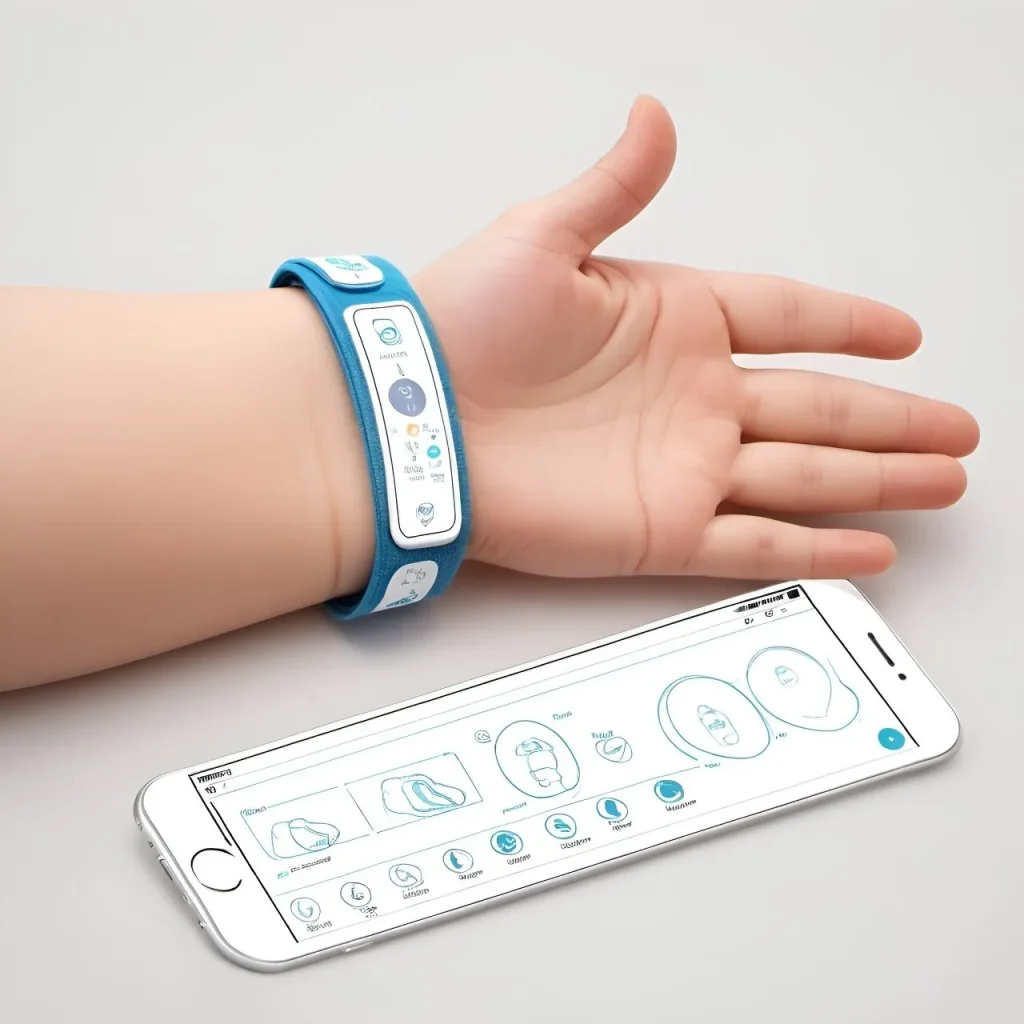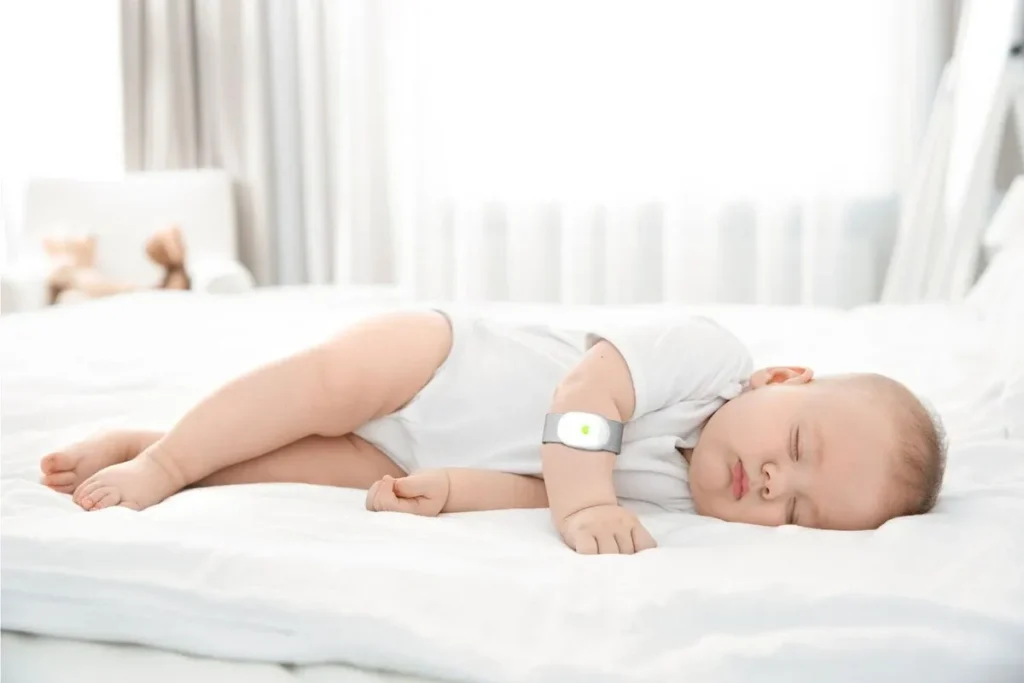Dr. Rula Sharqi, an electronics engineer and lecturer at Heriot-Watt University Dubai, has co-developed a smart wristband designed to replace traditional baby monitors. Named “LittleGard,” this innovative device promises to ease the burden on parents by continuously monitoring infants’ vital signs and sending real-time alerts if any concerns arise.

The concept for LittleGard emerged from Dr. Sharqi’s personal experience in 2018. As a single mother caring for her two-year-old son, Joseph, during a bout of fever, Dr. Sharqi endured numerous sleepless nights. Frequent checks on Joseph’s temperature left her exhausted, highlighting the urgent need for a device that could automatically monitor a child’s vital signs and alert parents when necessary.
“A baby’s fever tends to worsen at night due to the body’s circadian rhythm, which causes temperatures to peak in the late afternoon and evening,” explained Dr. Sharqi. “Through my own experience, I envisioned a device that could notify me via text message if my child’s temperature exceeded safe levels.”
Dr. Sharqi teamed up with Nakhul Kalaivanan, a fourth-year robotics engineering student, to develop LittleGard over the past year. The wristband is equipped with advanced nanosensors that track body temperature, oxygen levels, and pulse rate. LittleGard distinguishes itself from other products by its ability to send immediate alerts not only to parents but also to caregivers, medical professionals, and emergency services if required.
The wristband is crafted from a soft rubber material, similar to that used in Apple watches, ensuring both comfort and precision. It securely attaches to the baby’s skin, providing accurate readings. The device is wireless, powered by a rechargeable battery designed to last up to six months between charges.
LittleGard’s app sends automatic alerts via email or text when vital signs deviate from safe parameters. “This feature allows parents and even family doctors to receive real-time updates,” said Kalaivanan. “We’ve also integrated safeguards to ensure that a message is always sent, even if WiFi connectivity drops temporarily.”

Safety is paramount; the device is engineered to be battery-powered and equipped with advanced sensors to prevent overheating, making it a reliable option for continuous monitoring.
Having successfully developed a working prototype, Dr. Sharqi and Kalaivanan are now seeking an industry partner to bring LittleGard to market. Remarkably, they are offering their innovation for free to a company capable of further development and distribution.
“We genuinely believe in the life-saving potential of LittleGard,” said Dr. Sharqi. “Uncontrolled fevers are a leading cause of infant fatalities. By providing this technology to a company with the resources to mass-produce it, we hope to make a significant impact on infant care globally.”
LittleGard is poised to transform how parents monitor their children’s health, offering peace of mind and potentially saving lives. Dr. Sharqi and Kalaivanan’s dedication to advancing this technology underscores their commitment to enhancing child care through innovation.
